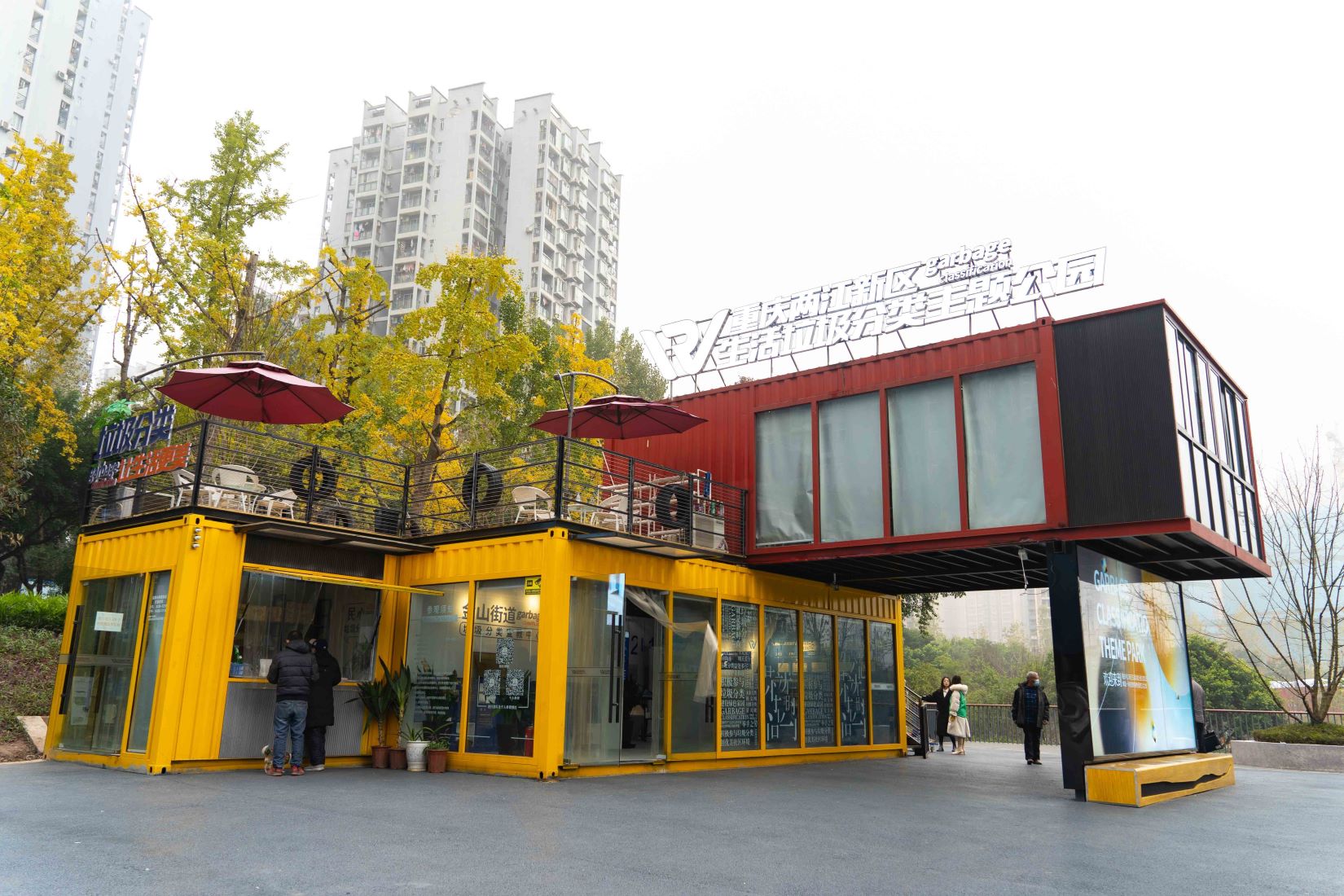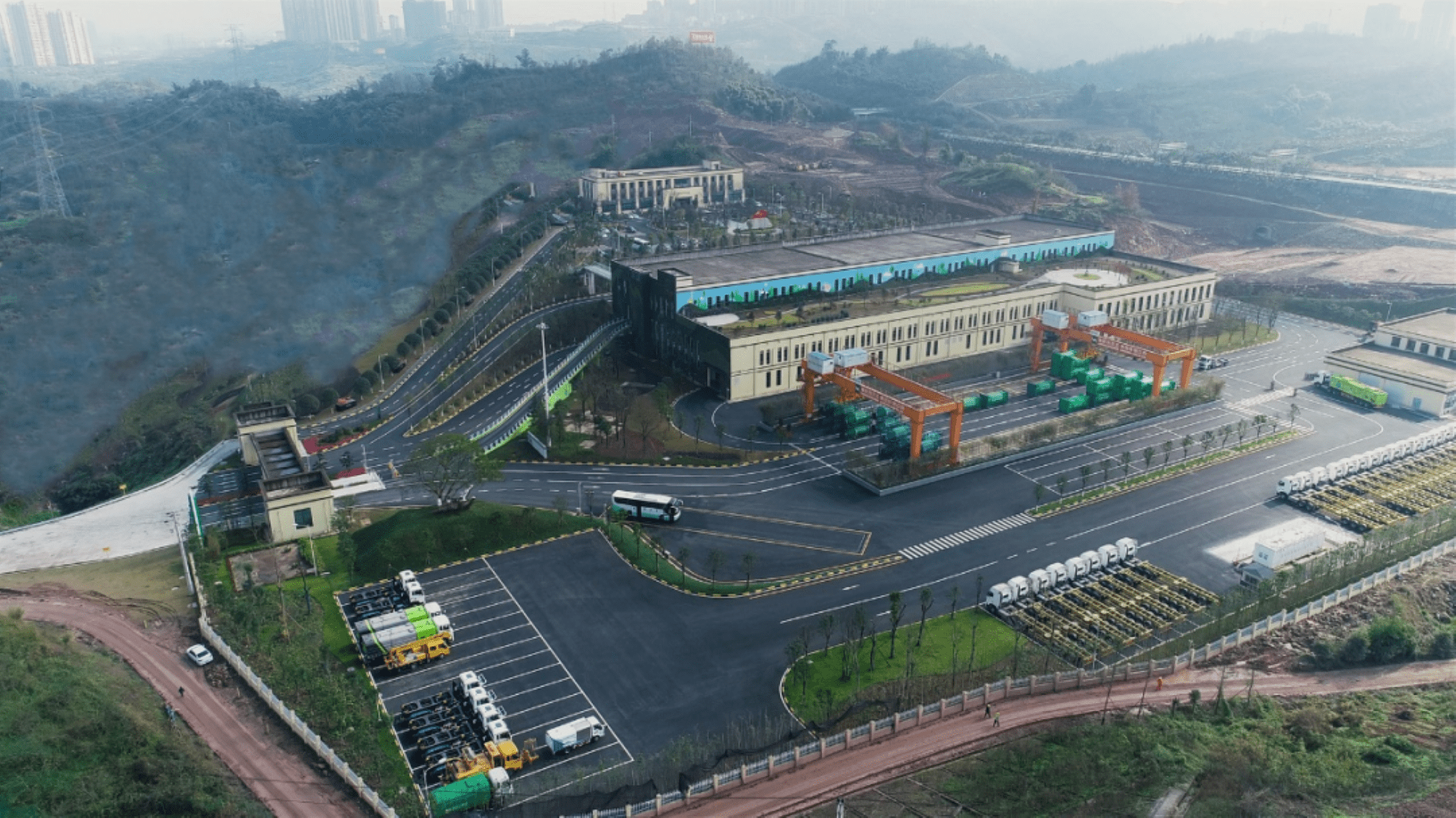In 2018, the State Council of China issued a work plan for the zero-waste city pilot project.
A zero-waste city refers to an advanced urban development and management model that aims to promote a green lifestyle, minimize the amount of waste produced, strengthen recycling programs, and ensure that the waste released into the environment is harmless.
Construction of the pilot zero-waste city project is of great significance to promote the comprehensive reform of urban solid waste management, and an important measure to promote ecological civilization and build a beautiful China. Chongqing was selected as one of the pilot cities for the project.
In 2022, Chongqing sketched out a plan on implementing the construction to build the city as a zero-waste city. According to the layout, Chongqing will further the zero-waste city construction in the urban area and start the step-by-step construction in its districts and counties in phases. By 2025, Chongqing is expected to have established 2 comprehensive management systems for its zero-waste construction as well as for the co-construction within the Chengdu-Chongqing economic circle. With the establishment of the systems, at that time, Chongqing will step towards the realization of a decrease in solid waste generation and an increase in its recycling and utilization.
According to the implementation plan, Chongqing will focus on citywide construction, digitalization in the process, and co-construction between Chongqing and Sichuan province. There is a framework titled “5+5+10” in the plan, directing the construction progress. The first “5” in the framework refers to the 5 major fields—industry, agriculture, construction, living, and hazardous waste disposal, facing problems in development models; the second “5” refers to the institutional construction in the 5 aspects—system, technology, market, supervision, and citizen engagement; “10” refers to the 10 main tasks, such as optimizing the operation system, improving resource utilization efficiency, enhance the regional exchange and communication, etc.
Under the plan, the modernization of the system and capacity for solid waste management will advance by 2025. And Chongqing will take steps to become a nationally leading zero-waste city by 2027, acting as a model of no-waste cities that is replicable and applicable.

Six focuses in Chongqing’s zero-waste city construction
Citywide coverage
Chongqing will achieve the citywide construction of a zero-waste city in 2023. The capacity of urban sludge disposal will increase by 40,000 tons per year by 2023. And the transformation of sludge disposal from cooperative disposal to specialized disposal will be completed in the urban area. Besides, by 2023, the capacity of hazardous waste disposal and domestic waste incineration will increase by 100,000 tons per year and 500 tons per day respectively. As a result, the plan of zero landfill and full incineration for primary domestic waste will come to fruition.
Units of zero-waste city
Chongqing will frame a guide to building a group of units serving the zero-waste city. Chongqing has set up some zero-waste vegetable markets and hospitals, low-carbon factories, and garbage classification facilities,with much experience accumulated. There will be more pilot projects on financing models and zero-waste corporations.
Green buildings
Green building is the practice of creating structures and using processes that are environmentally responsible and resource-efficient throughout a building’s life cycle from siting to design, construction, operation, maintenance, renovation, and deconstruction. Green buildings make it possible harmony between human and nature. At the end of this year, the proportion of new green buildings in new buildings in Chongqing will reach more than 85%, and is up to 100% by the end of 2025.

Zero landfill
During the 14th Five-Year Plan period (2021-2025), Chongqing will accelerate the construction of 6 domestic waste incineration projects and 6 kitchen waste utilization projects to achieve full coverage of waste incineration and kitchen waste utilization in the main urban area and the towns of Wuling Mountain area in southeast Chongqing. All of the efforts will facilitate the zero landfill of primary domestic waste.
Venous industry park
In conjunction with the development of the local circular economy, Chongqing will prioritize the creation of 3 venous industry parks in Yubei, Bishan, and Tongnan, three districts of Chongqing. Venous industry refers to industries that turn solid industrial waste into reusable resources, which will then be used in production once again. It involves two processes: going from solid wastes to raw materials, and from raw materials to finished products. There will be 8 comprehensive venous industry parks in Chongqing before 2023. And the number will grow to reach 24 by 2035.
Green factories
Chongqing will promote the construction of green factories and green industry parks, reducing the generation of solid waste in production from source to process. By 2025, Chongqing will develop about 400 municipal green factories and keep the comprehensive utilization rate of industrial solid waste stable at over 70%.







